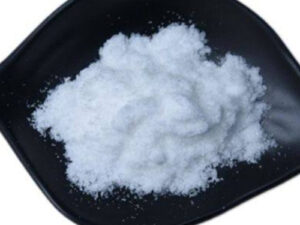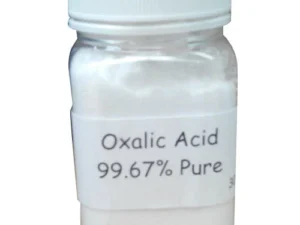Description
Lauric Acid: More Than Just Coconut Oil’s Claim to Fame
Lauric acid, a saturated fatty acid, is making waves in the health and wellness community. While often associated with coconut oil, its benefits and sources extend beyond just that tropical staple. Let’s delve into what lauric acid is, its potential benefits, and where you can find it.
What is Lauric Acid?
Lauric acid is a medium-chain triglyceride (MCT) with a 12-carbon chain. This unique structure gives it some distinct properties compared to long-chain fatty acids. It’s a white, powdery solid at room temperature and is known for its antimicrobial and antiviral properties. The “acid” part of its name comes from its carboxylic acid group, which allows it to react with other molecules.
Beyond Coconut Oil: Sources of Lauric Acid
While coconut oil is indeed a rich source of lauric acid, containing approximately 45-53% of the fatty acid, it’s not the only option. Other sources include:
- Palm Kernel Oil: Similar to coconut oil, palm kernel oil is another significant source of lauric acid. However, its sourcing practices have raised environmental concerns, so sustainable options should be prioritized.
- Human Breast Milk: Remarkably, human breast milk contains lauric acid, providing infants with potential immune-boosting benefits.
- Cow’s Milk and Goat’s Milk: These animal milks contain lower concentrations of lauric acid compared to coconut oil but still contribute to dietary intake.
- Some Seeds and Plant Oils: Certain seeds and plant oils, such as bay laurel oil and murumuru butter, also contain lauric acid, though often in smaller percentages.
Potential Health Benefits of Lauric Acid:
The potential health benefits of lauric acid stem primarily from its antimicrobial and antiviral properties. Research suggests that when digested, lauric acid is converted into monolaurin, a monoglyceride with potent effects. These potential benefits include:
- Antimicrobial Activity: Monolaurin can disrupt the lipid membranes of certain bacteria, viruses, and fungi, potentially helping to fight infections. Studies have explored its effectiveness against pathogens like Staphylococcus aureus and Candida albicans.
- Immune Support: By combating harmful microorganisms, lauric acid may contribute to a healthier immune system.
- Skin Health: Some studies suggest that lauric acid may have anti-inflammatory properties that could benefit skin conditions like acne. It is also used in some skincare products for its moisturizing properties.
- Potential Cardiovascular Benefits: While saturated fats are often associated with negative cardiovascular effects, some research suggests that lauric acid may increase levels of “good” cholesterol (HDL). However, more research is needed to fully understand its impact on heart health.
- Weight Management: As an MCT, lauric acid is metabolized differently than long-chain fatty acids. Some studies suggest that MCTs may promote weight loss and improve energy expenditure.
Important Considerations and Further Research:
Despite the promising research, it’s crucial to note that many studies on lauric acid have been conducted in vitro (test tube) or on animals. More human trials are needed to confirm its effectiveness and establish optimal dosages for specific health benefits.
Furthermore, while lauric acid might raise HDL cholesterol, the overall impact on cardiovascular health is still debated. It’s essential to consider the overall fat intake and dietary context when incorporating lauric acid-rich foods into your diet.
Conclusion:
Lauric acid is a fascinating fatty acid with potential health benefits attributed to its antimicrobial and antiviral properties. While coconut oil remains its most well-known source, it’s important to be aware of other options. As with any dietary addition, it’s best to consult with a healthcare professional or registered dietitian to determine if incorporating more lauric acid-rich foods into your diet is right for you, taking into account your individual health needs and dietary requirements. Continued research will further clarify the full scope of lauric acid’s potential health benefits and provide more definitive guidance on its role in a healthy diet.












Reviews
There are no reviews yet.